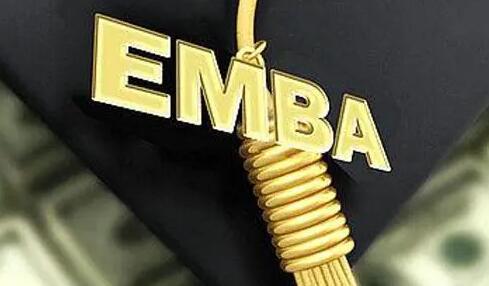Executive Master of Business Administration

The Executive Master of Business Administration (EMBA) is designed to cultivate middle and senior managers with high political literacy, sense of responsibility and professional ethics, which is different from MBA, and other types of EDPs for on-the-job training for senior corporate managers. Training.
EMBA was first born in the School of Management of the University of Chicago, and it was established to serve senior managers. The full name of EMBA in English is EXECUTIVE MASTER OF BUSINESS ADMINISTRATION, literally translated as senior management MBA, or senior management master of business administration, usually referred to as senior business administration master.
EMBA students are generally recommended by the company and use their spare time to concentrate on classes. The course content is extensive and the theory and practice are combined. Its essence is a kind of on-the-job training with a degree.
In the United States, EMBA students come from various companies, such as manufacturing, financial, trade, and government departments. In Canada, more EMBA students come from government departments. Their average entry age is 38 years old, 96% of them have a bachelor's degree, generally have 10 years of management experience, and an annual income of 78,000 US dollars. 60% of EMBA programs offer courses in international business, trade and finance. For 10% of the projects, the school will organize students to conduct a one-week academic visit abroad on a certain international issue. Some colleges set up a series of lectures for famous people, inviting successful entrepreneurs, government officials and celebrities to give lectures and communicate with them. In foreign countries, continuing to study is regarded as an investment. EMBA students hope to invest tens of thousands of dollars in two years, and it should not be a problem to get a return after completing their studies. Those with an EMBA study background and many years of work experience are very popular with employers. Tuition fees vary greatly from school to school. The average tuition fee per person per year is US$11,000, and the tuition fees of famous schools are as high as US$25,000.
Subject characteristics
(1) The meaning of EMBA is very clear, that is, EMBA teaching pays much attention to case teaching and case discussion. EMBA students usually study while working, have a short time in school, and the content of lectures is relatively small. However, because the students have more work experience and background knowledge, they use fewer teaching cases, but the scope of the discussion is much wider and the teachers are more challenging. The EMBA of American Business School focuses on case teaching, emphasizing the use of computer software for simulation teaching. For example, the Harvard Business School's expenses for the development of teaching software and hardware management are as high as 10 million US dollars, which greatly improves their modern teaching level.
(2) EMBA is not representative of anything. The most important thing is the combination of theory and practice.
(3) Classrooms occasionally invite CEOs of well-known international and domestic companies and outstanding business executives to communicate and dialogue with students. This makes the content of the class closely related to the development of the company, and gives students the opportunity to contact business leaders to understand their organization, business experience, management style, and the challenges they face and their experience in coping with them.
(4) Jointly running schools and running schools in different places have gradually become a trend. Many domestic colleges and universities have launched joint EMBA programs, which reflects the common understanding of the establishment of EMBA among colleges and universities.
(5) Many business schools have implemented mobile classroom plans when setting up courses for EMBA. The so-called "mobile classroom" means that each class will go to other places to study once or several times during class. After class, students are arranged to conduct targeted visits to local enterprises to broaden their horizons and improve their management level.
(6) Professional education. On the basis of comprehensive EMBA, some business schools try targeted industry segmentation to get closer to the needs of different students. These professional management courses, due to their depth and breadth of industry research, are undoubtedly very attractive for professional knowledge who aspire to develop in the industry.



